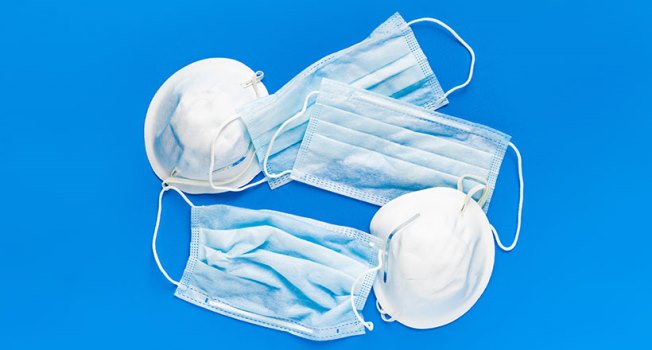WHO updates guidelines on using mask

By A Staff Reporter
Kathmandu, June 7: The World Health Organisation (WHO) has updated guidelines on the use of masks for controlling COVID-19.
Briefing the media on June 5, Director General at World Health Organisation (WHO) Dr Tedros Adhanom Ghebreyesus revealed that the Organization had come up with updated guidelines based on evolving evidences and provides updated advice on who should wear a mask, when it should be worn and what it should be made of.
The guidance has been updated following extensive consultation with experts and civil society groups.
WHO has been saying that masks should only ever be used as part of a comprehensive strategy in the fight against COVID-19.
In the updated guidelines, WHO advises medical masks for all people – not only workers dealing with patients with COVID-19 – working in clinical areas of a health facility.
The Organization also advised people aged 60 or above, or those with underlying conditions, to wear a medical mask in situations where physical distancing is not possible.
Similarly, WHO advises the governments to encourage general public to wear masks at places – such as public transport, shops or crowded environment – where there is widespread transmission and physical distancing is difficult.
The guidelines also consist information on the composition of fabric masks. WHO mentions three layers of different materials, as recommended by the organisation, in the production of fabric masks.
As per WHO, they have also explained ways to wash and maintain a fabric mask alongside the way to use masks safely.
“People can potentially infect themselves if they use contaminated hands to adjust a mask, or to repeatedly take it off and put it on, without cleaning hands in between. Masks can also create a false sense of security, leading people to neglect measures such as hand hygiene and physical distancing,” said Ghebreyesus in the media briefing.
WHO officials have urged that masks alone cannot help prevent COVID-19 and, hence, it should not be believed as a replacement for physical distancing, hand hygiene and other public health measures.
As per the organisation, finding, isolating, testing and caring for every case and tracing and placing in quarantine every contact is a country’s best defence against COVID-19.
Recent News

Do not make expressions casting dout on election: EC
14 Apr, 2022
CM Bhatta says may New Year 2079 BS inspire positive thinking
14 Apr, 2022
Three new cases, 44 recoveries in 24 hours
14 Apr, 2022
689 climbers of 84 teams so far acquire permits for climbing various peaks this spring season
14 Apr, 2022
How the rising cost of living crisis is impacting Nepal
14 Apr, 2022
US military confirms an interstellar meteor collided with Earth
14 Apr, 2022
Valneva Covid vaccine approved for use in UK
14 Apr, 2022
Chair Prachanda highlights need of unity among Maoist, Communist forces
14 Apr, 2022
Ranbir Kapoor and Alia Bhatt: Bollywood toasts star couple on wedding
14 Apr, 2022
President Bhandari confers decorations (Photo Feature)
14 Apr, 2022











